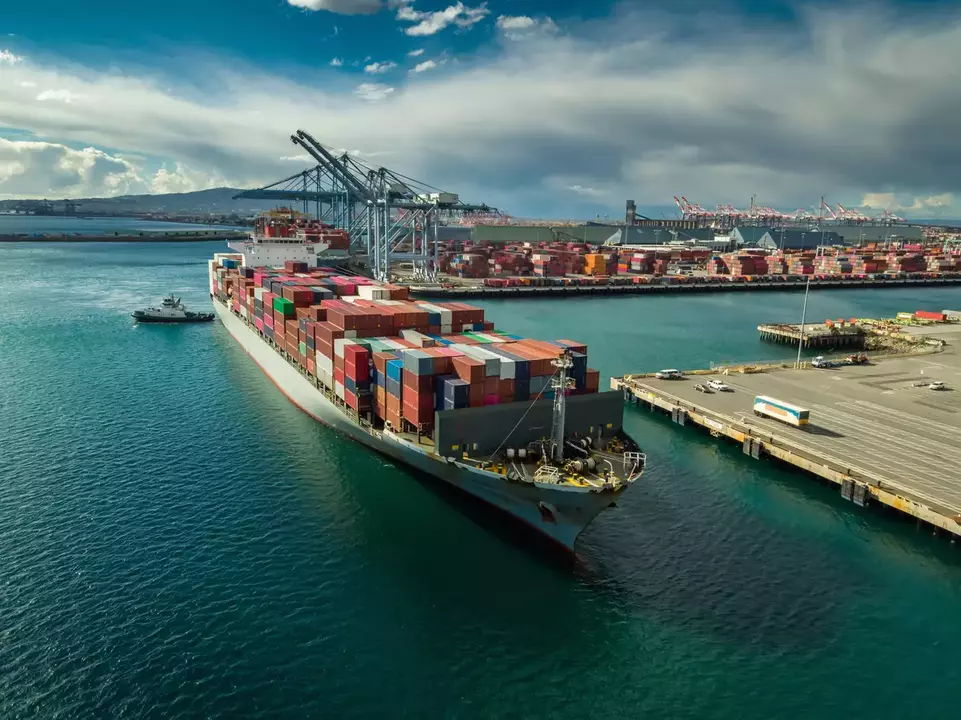Highlighting the Importance of Maritime Ports in Facilitating Global Trade: Trends and Challenges in 2024
In the intricate network of global trade, maritime ports serve as essential hubs, facilitating the seamless flow of goods across international borders. As climate change, technological advancements, and economic shifts reshape the world, U.S. maritime ports have become more than just infrastructure; they are crucial pillars supporting the international logistics network. This post explores the vital role of American ports in the global maritime industry, highlighting recent developments and the anticipated import surge from Asia.
Current Maritime Landscape in the U.S.
Acute Dependence on Ports
U.S. maritime ports handle substantial cargo volumes, acting as gateways for goods and a linchpin for global trade. They facilitate the export of U.S.-based goods and the import of raw materials, food products, electronics, and components from around the world.
Recent Labor Agreement
The resolution of the U.S. maritime labor dispute underscores the importance of contractual agreements in port operations. The International Longshoremen’s Association (ILA) and the United States Maritime Alliance reached a six-year labor deal, averting a potential strike. This agreement ensures operational continuity and stability in the maritime sector, highlighting the industry’s resilience.
Economic Impact of Ports
Ports contribute significantly to local economies by creating jobs and fostering innovation in logistics, technology, and safety. Enhancements in port operations efficiency lead to shorter transit times and lower costs, reinforcing the sector’s competitive edge.
Ongoing Trends and Challenges
Technological Innovations
The integration of advanced technologies like automation, artificial intelligence, and blockchain is transforming maritime port operations. These innovations aim to enhance efficiency, capacity, and security, enabling ports to handle increased maritime traffic effectively.
Global Economic Dynamics
- Import Surge: As the U.S. economy recovers from pandemic disruptions, international trade, particularly imports from Asia, is growing rapidly. U.S. ports are managing increased cargo volumes, ensuring timely and efficient service.
- Shifts in Trade Routes: Geopolitical tensions and changes in trade agreements, such as those affecting the Suez Canal and the Strait of Hormuz, require ports and shipping companies to adapt and optimize routes for cost-effectiveness and timely service.
Environmental Sustainability
- Green Initiatives: Ports are adopting clean energy solutions, transitioning to electric or hybrid equipment, and implementing energy-efficient infrastructure to reduce their environmental impact and comply with stricter emission standards.
- Regulatory Compliance: Adhering to emission standards and implementing alternative fuels present both challenges and opportunities, driving innovation in maritime logistics and ensuring regulatory compliance.
Conclusion
American ports are pivotal in navigating the dynamic challenges of the maritime industry, embracing technological innovations, addressing environmental concerns, and maintaining operational resilience. The recent labor agreement highlights the importance of stability, while ongoing trends underscore the need for adaptation and sustainability. As the global economy evolves, maritime ports are poised to support the global trade network effectively.
Call-to-Action: Industry stakeholders can propel the maritime sector forward by embracing innovation, focusing on sustainability, and fostering international cooperation. Engage in discussions and initiatives aimed at enhancing port efficiency, reducing emissions, and upgrading workforce skills to ensure the sector’s strength in the coming years. Subscribe to our newsletter, comment below, or share this post to stay informed and contribute to the conversation.


Leave a Reply